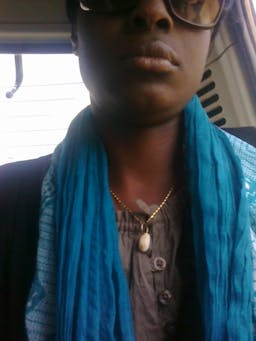Web 2.0, my meet and write place
Jan 21, 2015
Story
I never thought I could be excited about Web 2.0, in fact I knew nothing about this term, until this assignment. My poetry is something I have been writing for a long time, and I have always been claiming that I will eventually make time to publish it. Facebook and skype at first fascinated me. I could post my poems as notes, a feature I cherish to this day. I can safely say that outside of my single performance at the Sisters Open Mic session, in Harare’s Book Cafe, it was the first time that people actually read my stuff. I received feedback and got more inspired to write. I discovered chat, real conversations with real people. The internet is a forum where I am in control. I generate content, other users participate. The world is progressing daily; and I am up to speed with current events.
Information is power; women all over the world now communicate about issues that affect them, and how to overcome them. Women can be educated on their rights and the ways in which they can be empowered. The internet is a catalyst of change. It creates opportunities for women, to make money and empower themselves financially. I believe that information and access to it are key(s) to survival and performance, an important aspect in empowerment issues. The use of the internet as opposed to the website and intranet ensures information is not controlled from a central point, but is decentralised, encouraging participation of all involved. We now have a chance to change societies outside of the constraints of resources. Limitations of time, costs, and distance are phased away at the click of a button. It is a platform that can be used to raise funds to finance various projects. Of importance, women that have been involved in the development of Web 2.0 contribute to the global movement of women’s empowerment in many ways. They are mentors for other women. These women made it in a male dominated industry. They are directly contributing to the benefits that we get from use of Web 2.0. Of special mention are Marrisa Mayer, Google Vice President of Search Products and Rashma Sinha, the CEO and founder of Slide Share. Both are programmes are a part of the movement from static HTML to dynamic web, a development indispensable to the global movement for women’s empowerment.
I now can communicate to family and friends about my life directly (via chat, emails) or indirectly via my status updates. The web has given me an opportunity to discover information about scholarships available for the common Africa woman; I found my current job via an internet search. I met new colleagues and friends via the internet, and they have added value to my life. Web 2.0, my meet and my write place, I am the author, the editor and the publisher.




